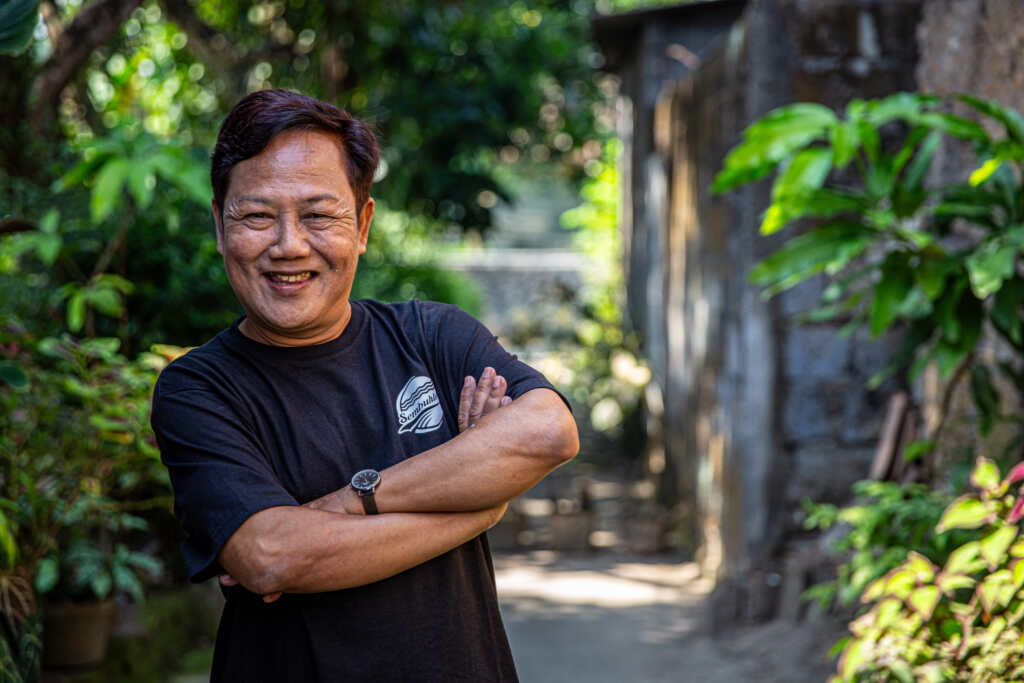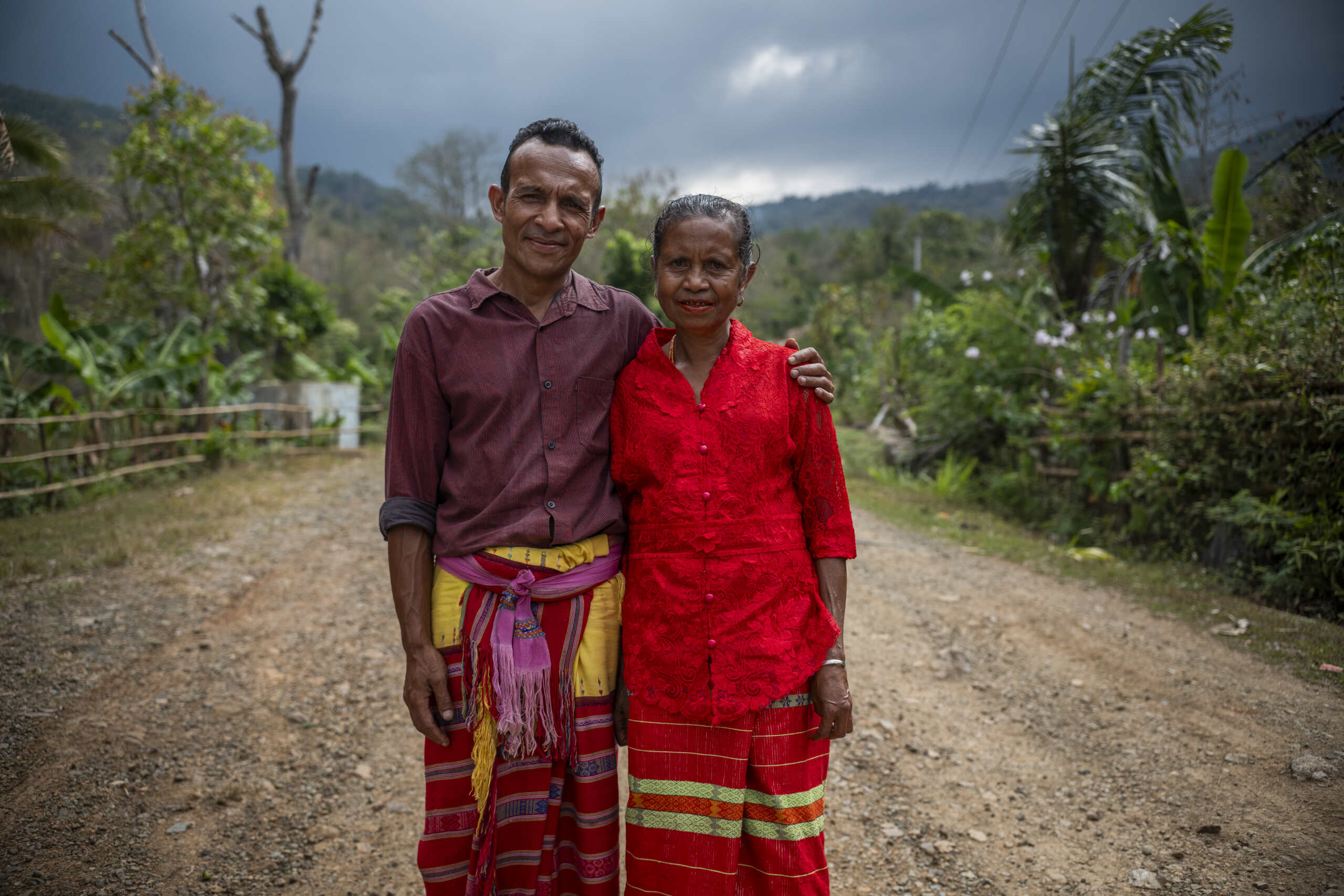Mental health: a community, governance, and human rights issue
Stories | November 10, 2025
Mental health conditions are among the most prevalent and significant contributors to disability worldwide.
However, access to effective, affordable, accessible and quality mental health services remains critically insufficient, particularly in under-resourced settings. At CBM Australia, supporting disability inclusion means recognising and responding to all forms of disability, whether visible or not. That is why we are actively addressing this often-invisible disability through a rights-based inclusive approach that strengthens health systems, amplifies the voice of people with psychosocial disabilities, and fosters community-based models of care. We know that even if someone’s disability is not immediately obvious, it’s impacts can still be profound and the need for appropriate, sustained support remains just as critical.
This commitment is exemplified through initiatives like CEPLERY – the Community Empowerment for Psychosocial Health, Livelihood, and Emergency Resilience in Yogyakarta project – implemented in Indonesia from 2022 to 2024.

Funded by CBM Australia and implemented by Pusat Rehabilitasi Yakkum (PRY), CEPLERY has supported over 700 individuals, including people with psychosocial disabilities and their caregivers. But beyond the numbers, the project has laid the groundwork for sustainable inclusion, establishing community-based rehabilitation (CBR) at the village level and embedding mental health into government priorities.
A recent evaluation highlighted the primary ways in which CEPLERY have contributed to building an environment in which people with psychosocial disabilities can participate and engage meaningfully in their communities.
- CEPLERY helped embed mental health into village development planning meetings, ensuring mental health became a regular part of the community development agenda, and influenced the enactment of three key mental health policies on disaster preparedness, suicide prevention, and psychosocial rehabilitation. These efforts challenge stigma and institutional neglect, ensuring people with psychosocial disabilities are recognised and supported in governance systems.
- The project trained mental health volunteers, caregivers, and local leaders to provide community-based support. These volunteers became vital links – organising Self-Help Groups (SHGs), conducting home visits, and ensuring consistent access to psychosocial services. This approach emphasises community support networks that enable participation beyond clinical settings.
- By integrating mental health services into 13 public offices and 8 primary healthcare centres, CEPLERY made mental health care more accessible. SHGs brought services closer to home, especially in marginalised communities, and helped participants overcome isolation and fear.
- Secure work is a cornerstone of inclusion and improved quality of life. CEPLERY provided training and start-up kits for activities like duck farming and batik-making and supported participation in income-generating activities. These initiatives not only improved income but also boosted self-worth and social participation, especially for those often excluded from formal employment.
- Through public campaigns, guidebooks, and community events, CEPLERY tackled stigma head-on. Participants reported increased confidence, with nearly half feeling empowered to advocate within their families. While broader self-advocacy remains a challenge, the foundation has been laid.
- Perhaps most importantly, CEPLERY embedded sustainability into its design. Village budgets and policies now support CBR components, including SHGs, mental health volunteers, and livelihood programs – ensuring that inclusion is not a project outcome, but a community norm.
“Addressing mental health issues should not stop at healthcare facilities, but also involves the family and surrounding environment,” says the District Health Office.
The CEPLERY project is a good example of how Community-Based Inclusive Development can eliminate the barriers that prevent people with psychosocial disabilities from participating meaningfully in society and on an equal basis with others. It also reminds us that mental health is not just a medical issue – it’s a community issue, a governance issue, and a human rights issue.
Let’s continue to build systems where everyone belongs.
Read the full report ‘Supporting Community Mental Health in Indonesia’.
CBM Australia acknowledges the support of the Australian Government through the Australian NGO Cooperation Program (ANCP).
https://www.cbm.org.au/stories/mental-health-its-not-just-a-medical-issue-its-a-community-issue-a-governance-issue-and-a-human-rights-issue
Related Stories

Building inclusive, climate resilient communities in Bangladesh
Highlights from DFAT Post’s visit In January 2026, representatives from the Australian High Commission in...

Week 1 – Lent series 2026
As we enter the season of Lent, we’re taking time as a community to pause, reflect, and draw closer to the heart of God. Lent invites...

How CBM is making a difference in Indonesia
For more than 45 years, CBM Global has been working alongside communities in Indonesia to ensure people with disabilities...
